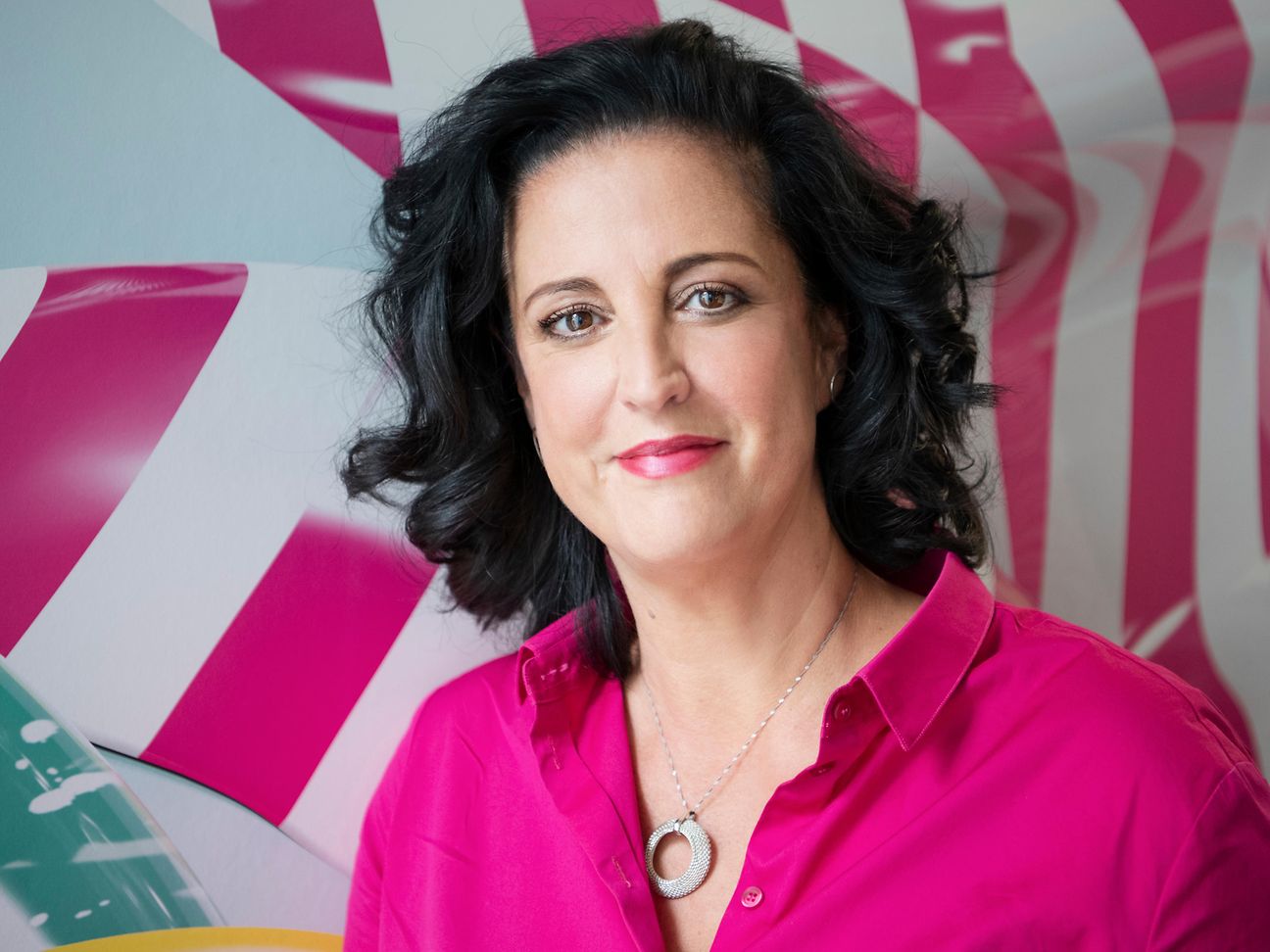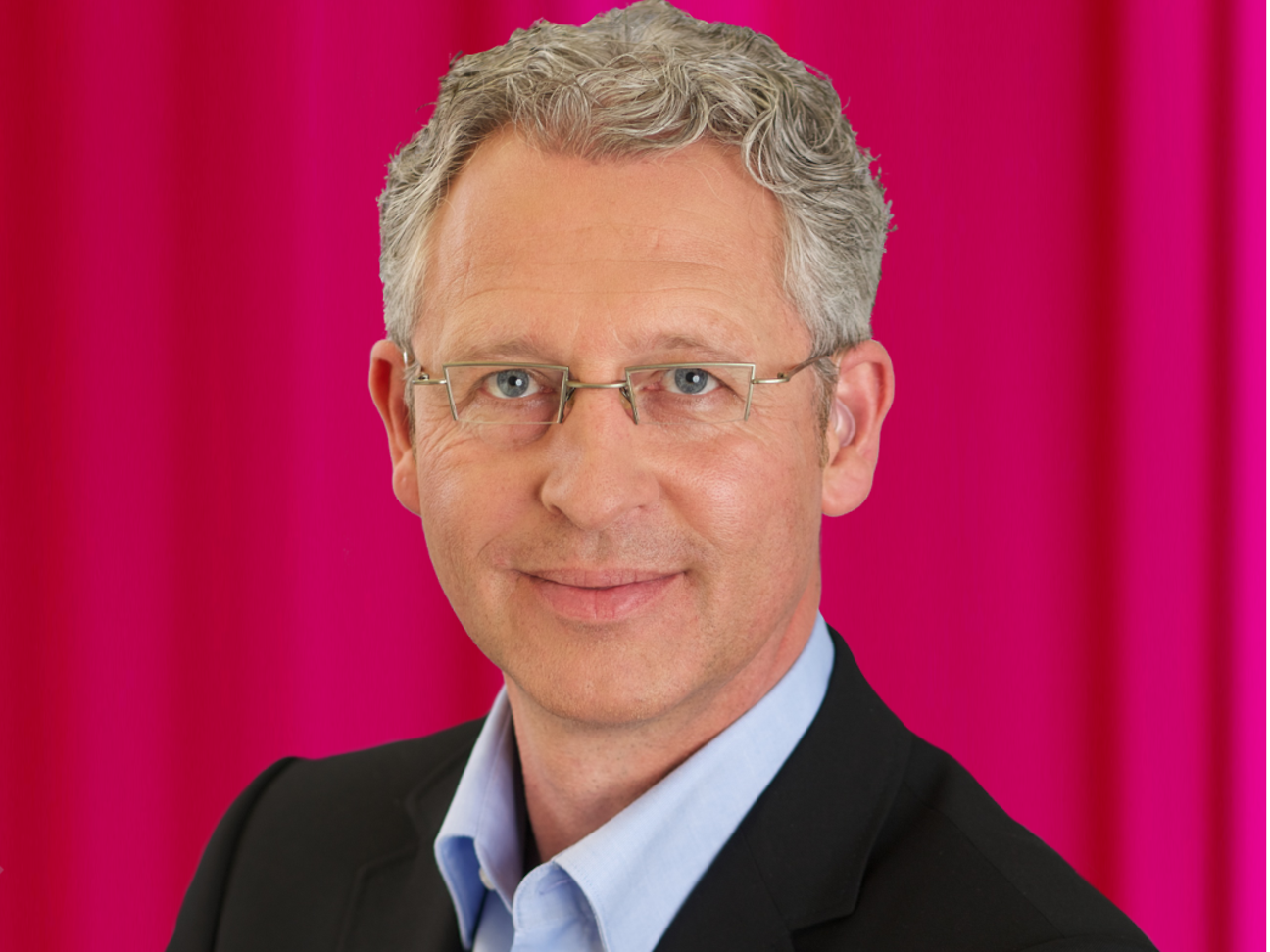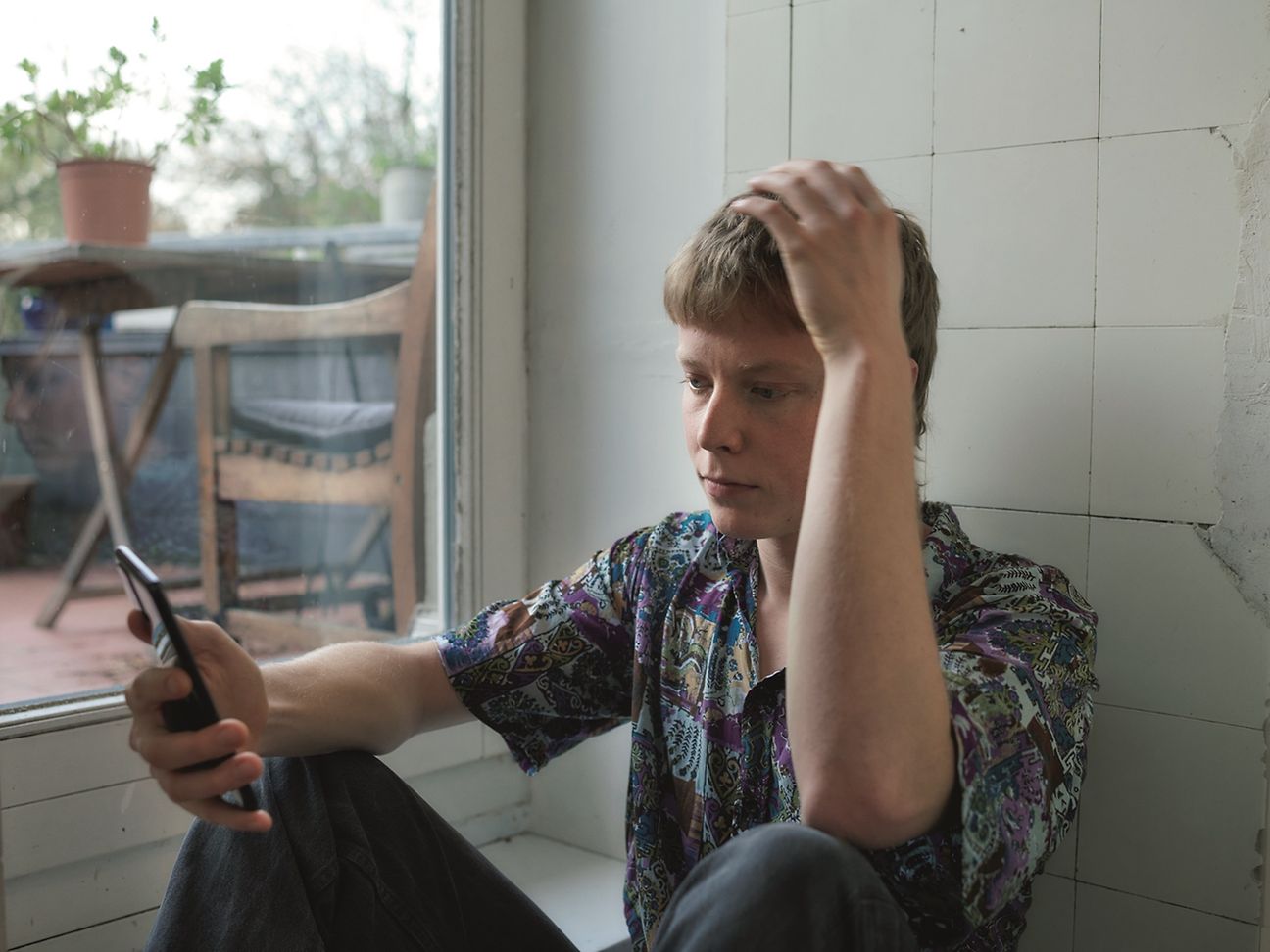

Working to eliminate online hate speech: We're continuing our commitment in 2021!
"You're disgusting!" – "Why don't you just kill yourself!" Jay, the transgender man featured in the commercial #NOHATESPEECH, got all kinds of verbal abuse online, day in and day out. In the commercial, Jay shared about the online hate speech he regularly encountered. Deutsche Telekom's message for this campaign, which is continuing, is "Words should not be used as weapons." Along with it, Deutsche Telekom is also involved in a broad range of other efforts aimed at combatting online hate speech. Christian Hahn, from Global Brand Management, and Barbara Costanzo, from Group Social Engagement, tell us why this issue is important for Deutsche Telekom, and about the efforts the company is planning in this area for 2021.
Issues are always shaped by people! In this light, I would like to begin with a personal question: What is it about the issue of "online hate speech" that motivates you personally?
Barbara Costanzo: I am firmly convinced that we can't afford to take our democracy, and our freedom to express a diverse range of opinions and perspectives, for granted. On the contrary: We have to fight for democracy and freedom of opinion, because they enrich our lives, in both the real and online worlds. Our motto is: Stop freezing in the headlights! Get over your shock at all the marginalization and hate speech, and take action! Any and all of us can take action and express solidarity. By doing so, we can start feeling better about the whole situation, and start doing something to combat manipulation, hate speech and hostility online.
Christian Hahn: Naturally enough, cyberbullying and online hate speech were not new concepts for me. But I had never been personally affected by them, so they basically remained abstract concepts for me. But now, after taking a much closer look, my feelings have changed. I know now that when I come across online hostility in my own work or private life, I won't simply look away or ignore the problem. I'll speak out about it consciously and explicitly. We must not allow words to become weapons.
Christian, last year you even built an advertising campaign around the issue of online hate speech. The clip with Jay, for example, was part of that series. Why is this issue so important for Deutsche Telekom?
Christian Hahn: We're living in digitally turbulent times – and not just since the pandemic took hold. The #TAKEPART – Against Online Hate Speech campaign we developed focuses on exactly this point. We have a position on this, and we want to communicate it. We, Deutsche Telekom, want to connect people and enable everybody to participate in the digital society. We want nobody to be left behind or marginalized. Online, we see the problem that hate speech and marginalization have become a daily reality. Our society is being split in ways that are more and more palpable. Our commercial with Jay made viewers more aware of this problem, and it turned our basic idea for the campaign into something they could experience. By the way, we produced it before the pandemic ever reached us. Unfortunately enough, developments since then have only confirmed the correctness of our analysis; the prominence of fake news, hate speech and conspiracy theories has grown by leaps and bounds. With our campaign, we have helped make people more aware of the problem of online hate speech. And we have helped pave the way for people to take the next step – namely, to take an active role against online hate speech. In cooperation with a total of 44 partners, Deutsche Telekom is fighting to ensure that people can move freely online, without the fear of being marginalized. We want to make people aware and encourage them to stand up for what is right. In 2020, our campaign in Germany generated over 340 million contacts. That was a great success! At the same time, this issue continues to be important for Deutsche Telekom. We plan to continue our campaign, and our commitment against online hate speech, in 2021.
How have people been responding to the campaign?
Christian Hahn: Our commercials and measures have been reaching large numbers of people. Our commercial ran both in movie theaters – to the extent they were able to open during the pandemic – and on TV. Via a cooperative arrangement with the Pro 7 TV television network, we placed our message with the "GERMANYS NEXT TOPMODEL" TV program. We also bought radio time, print advertisements and social media placements. LeFloid, a top influencer, partnered with us in presenting our message.
Barbara, you and your team shape and support various aspects of Deutsche Telekom's social commitment. Where does Deutsche Telekom now stand with its commitment against online hate speech?
Barbara Costanzo: For us, digital participation is equivalent to social participation. We want to ensure that our society's people can move freely and securely online, on the basis of democratic values. In our view, therefore, saying that someone is "media literate" has to mean that they also are able to interact with other people in accordance with democratic rules. We take pride in the fact that we have found 44 partners – as of last count – who are interested in pulling together with us on this issue. We're building a power network against online hate speech.
We're carrying out diverse measures, aimed at a wide range of target groups, including experts, newcomers to the issue, kids, parents, teachers and many other adults and multipliers. We are present in many different kinds of events, discussions and workshops. Our take-part stories offer an extensive range of relevant learning modules, such as modules about civil courage. In them, we offer ideas about what each of us can do against online hate speech and online marginalization. At teachtoday and scroller, we offer age-appropriate teaching materials that teachers and parents can use with children and adolescents. We have also produced various podcasts, such as a podcast about the power of online speech. Within the company, we are also making every effort to make it clear that Deutsche Telekom will not tolerate any marginalization and racism among its staff. To that end, we have established a network consisting of representatives of the many different areas within the company that are concerned with this issue.
What's next this year?
Barbara Costanzo: I'm delighted to hear this question, because it enables me to announce that in 2021 we are definitely continuing our campaign against online hate speech. This is especially relevant in that this year will bring many elections. In addition, online hate speech tends to crop up in all kinds of places where we don't expect it. We also plan to keep a focus on this aspect. For example, we look at it in our module "Gaming – Where the Fun Stops." Gaming keeps getting more and more popular. During the pandemic, when we're all spending a lot of time at home, video games are a welcome diversion. The video games industry has been experiencing phenomenal growth. But are all of the games just fun and games? What really goes on in online games, especially in those with chat functions? Our messages about this will start at the end of March – so look forward to something interesting.


